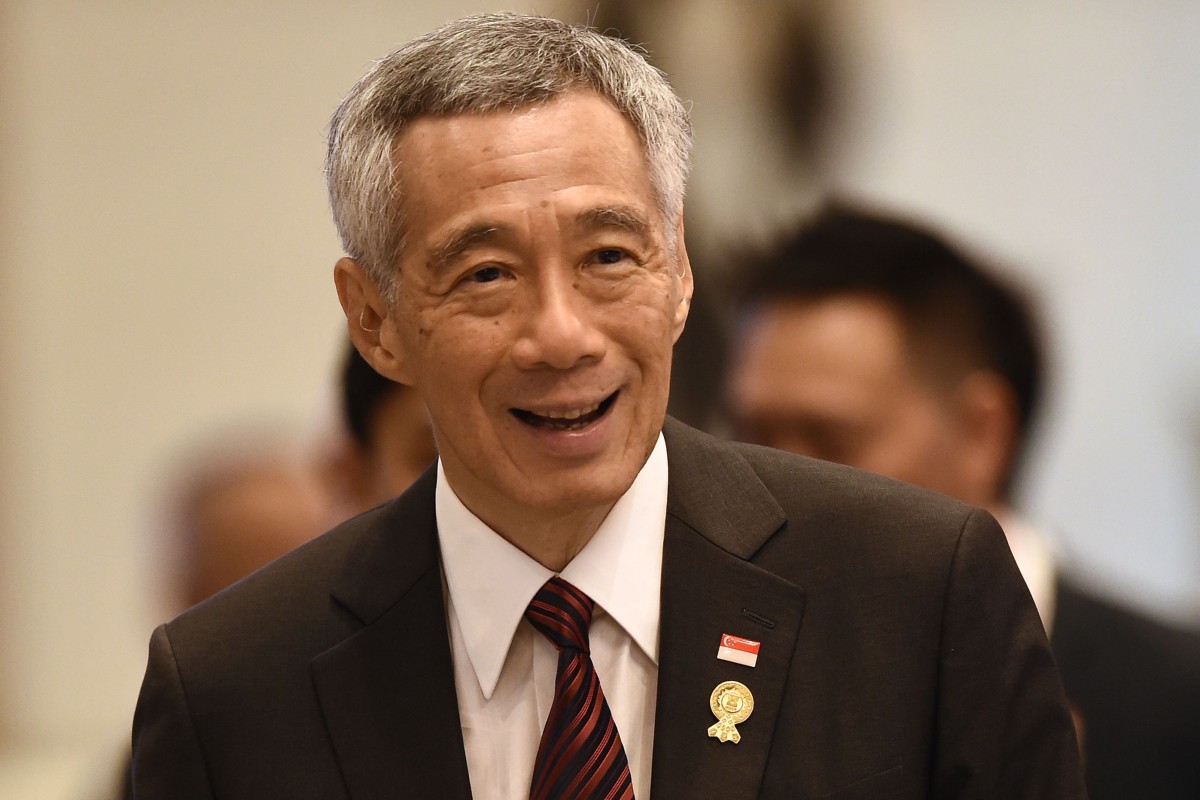 |
| Singapore's Prime Minister Lee Hsien Loong has been treated as a hero on Chinese social media since he said the Hong Kong protesters were trying to “humiliate and bring down” the Hong Kong government. Photo: AFP |
Alice Wu
29 Oct, 2019
Singaporean Prime Minister Lee Hsien Loong has recently offered
extensive comments on Hong Kong’s situation. At a time when repeating slogans sadly passes for public discourse and tweets are rampant, such thoughtful comments – which essentially require that they be more than 280 characters – without all the hyperbolic dressing are refreshing.
Lee said a lot more than what was most widely reported – that the protesters’ demands are not meant to be a programme to solve Hong Kong’s problems but are “intended to humiliate and bring down the government”. Mainland media immediately picked up on this and Lee became quite the hero there because of it. It’s most unfortunate, because he said much more, too.
He didn’t simply dismiss people’s grievances as livelihood issues or merely blame the unaffordable property market; he sees deep-seated political issues related to “one country, two systems” that his father, Singapore’s founding father Lee Kuan Yew, had warned about long ago.
The late senior Lee sounded prescient words for Hong Kong almost two decades ago. During his visit to the city in 2000, to receive an honorary degree from Chinese University, he spoke about the challenge for Hong Kong and Beijing to trust and accommodate one another.
Lee believed that if Hongkongers wanted more democracy and autonomy, they needed to convince Beijing that this would work within the boundaries set in the city’s mini-constitution. “Otherwise, the chief executive and the people of Hong Kong will find themselves locked in a frustrating process of attrition with the centre,” he said.
["Convince Beijing" that democracy and autonomy could work within the boundaries of HK? That would be easier said than done. The first step to do that would be to have a Chief Executive that was truly representative of the people and elected because he or she had the best interests of HK at heart, and had a vision of how HK could have democracy and autonomy within the boundaries. BUT China was set on tightening their control over the selection of the Chief Executive, and to ensure that the CE represented Beijing's interest first and foremost. How then would HKers convince Beijing of anything? Yes, HKers are in an unenviable and untenable position. They have NO paths to democracy, NO paths to solving their many social and political issues. And NO way to change their appointment with fate in 2047.]
That “frustrating process of attrition with the centre” has picked up tremendous speed this past decade and spiralled out of control in the past few months. During Lee Hsien Loong’s interview with CNN’s Fareed Zakaria this month, he continued his father’s line of thought, saying that Hong Kong is “part of China and this is a big psychological change which is not easy for the population to get used to”.
It would be wise for all – from those intent on throwing Molotov cocktails to the powers that be in Zhongnanhai – to take heed. So far, no one has been able to articulate the complexities and nuances of the city’s problems better than the Lees.
Lee Hsien Loong said that demonstrations to vent unhappiness and frustration, without knowing their end game, are “a most unfortunate state to be in”. As I’m certain the Singaporean prime minister knows well, Hong Kong has been stuck in this rut for far longer than just these past 20 weeks.
Lee offered some advice: “You have got to be able to move beyond that, and to take steps which will not overcome all of the problems at once, but [will] progressively tackle the issues that are bugging Hongkongers.”
Unfortunately, that needed to be done years ago, beginning with the end of the Occupy movement.
Hong Kong didn’t just catch the “virus of street violence … developing into the tumour of terrorism”, as Xie Feng, the commissioner of China’s ministry of foreign affairs office in Hong Kong, recently
said.
It’s a misdiagnosis, and this kind of rhetoric fuels the desperate fatalism that has gripped the city. It is also a prime example of the deep-seated issues linked to “one country, two systems”: the rhetoric and language that fuel antagonism instead of fostering understanding and trust.
There is merit in Lee’s assertion that protesters’ uncompromising demands are meant to humiliate the administration, because this is the only language that would get Beijing to stop and listen. The years of indirect clashes of words and values have left many feeling helpless.
[Unfortunately, humiliating Beijing is also futile. Beijing does not respond well to humiliation and will retaliate in the worst way. At this point, unless there is some inspired leadership, and Beijing has a dearth of that, the situation for HKers can only worsen.]
The open antagonism of the previous chief executive, Leung Chun-ying, coupled with current leader Carrie Lam Cheng Yuet-ngor’s blind arrogance, has left many feeling indignant. Beijing must accept that it needs to be prepared to adopt a more accommodating style to save “one country, two systems”. And protesters must accept the political reality that ultimatums – “all or nothing, now or never” – do not work, least of all with Beijing.
Most importantly, both sides must accept that all of this pain has accumulated over decades of sweeping political issues and difficult dialogue under the carpet.
Alice Wu is a political consultant and a former associate director of the Asia Pacific Media Network at UCLA
No comments:
Post a Comment